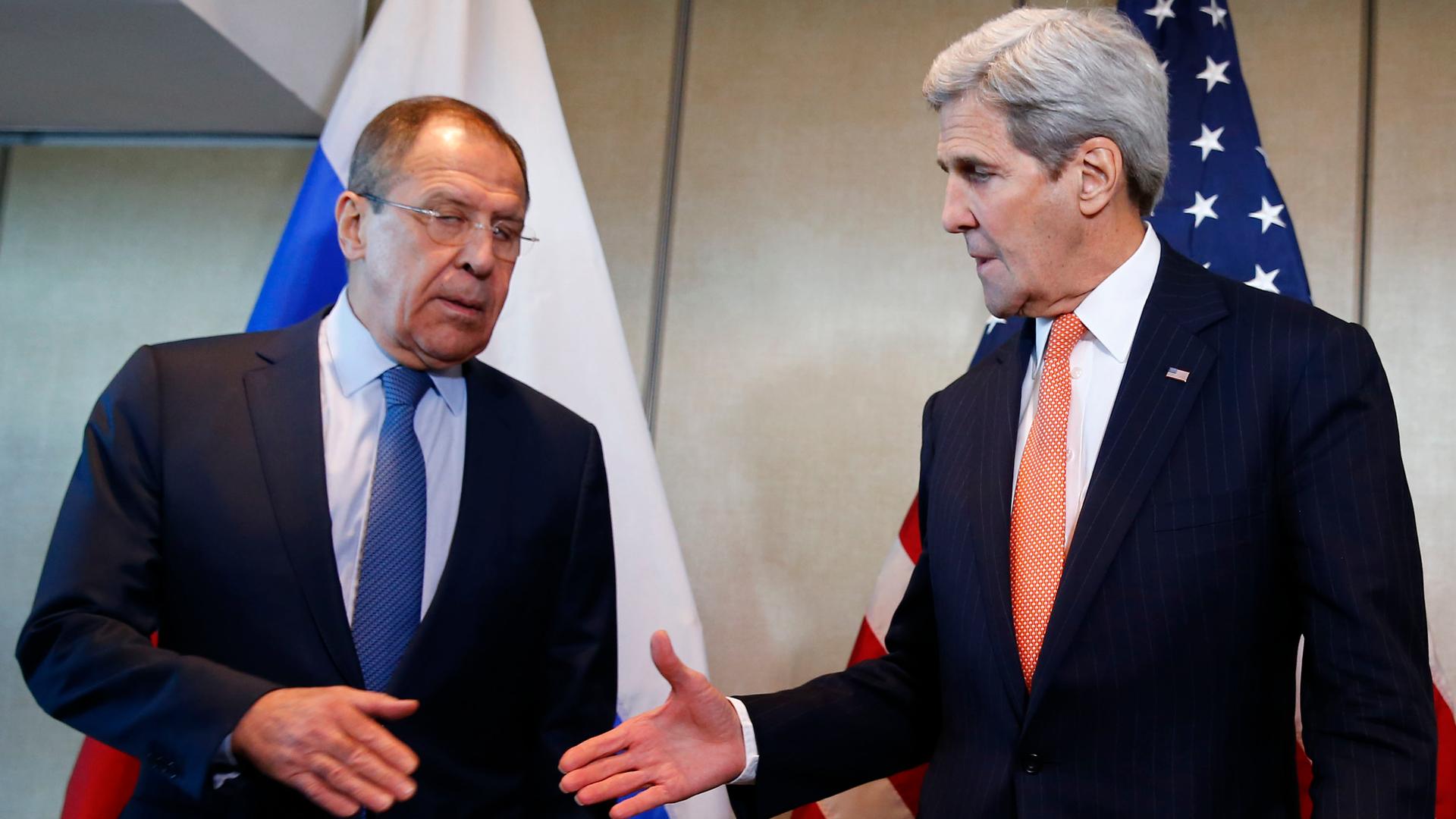A hesitant deal in Munich. Secretary of State John Kerry prepares to shake hands with his Russian counterpart, Sergei Lavrov.
A ceasefire deal announced for Syria surprised many observers Friday morning. And there are doubts about whether the deal can be implemented, because Syrian President Bashar al-Assad has said he's not bound by the deal.
Amr al-Azm, a professor and opponent of Syrian President Bashar al-Assad doesn't think the deal is cause for celebration.
"What are we supposed to celebrate?” asks Azm. “Obviously we welcome any efforts to halt the violence, or any efforts to reduce the impact of the Russian bombing, or more importantly deliver aid, food aid, and supplies to the besieged areas. … But I just don’t see how this is going to come about.”
Azm is an associate professor of history and anthropology at Shawnee State University in Portsmouth, Ohio. The ceasefire is to start in one week, and humanitarian assistance to embattled Syrians is to begin moving immediately. Azm sees huge problems with implementation.
“For starters, there were no Syrians at the table," he says. "I'm not optimistic."
ISIS and another powerful jihadi group, called Jabat al-Nusra (JAN) or the Nusra Front, are excluded from the deal. So the Americans and their allies will continue to bomb ISIS. And the Russians have said they will continue to bomb all terrorists.
Previously Moscow’s definition of "terrorist" in Syria has included anyone opposed to Russia’s ally, Syrian President Assad. The Nusra front is a branch of al-Qaeda.
Even if Russia decides only to target the Nusra Front, Azm highlights another problem, which is that Nusra fighters are integrated in many larger rebel positions, making it difficult to distinguish who’s who.
The ceasefire announcement came from Secretary of State John Kerry and his Russian counterpart Sergei Lavrov at an international conference on Syria in Munich.
The announcement comes at a historic moment, as Syrian regime forces, backed by Russia and Iran, close in on Syria’s oldest and largest city, Aleppo. The attack has triggered a massive flight of civilians towards Turkey.
So overall, it’s Azm’s opinion that no one should be saying "peace in our time," coming out of Munich. “Not with what we have on the table at present.”
